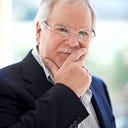The top 5 daily habits of the top CEOs
There is no doubt the top CEOs are juggling a huge workload.
Sure, they earn a lot of money, but they also face huge pressure to achieve excellence, day in and day out, in a highly competitive environment.
The top CEOs have strategies for managing their workflow; making decisions; and dealing with staff, clients and shareholders.
Whatever their individual habits or philosophies may be, the truly great CEOs find a formula that works for them and they stick to it.
This is something that unites them all: a firm belief that if they follow certain processes and adhere to certain habits they can maximise outcomes.
Here are some examples of the daily habits of our top business performers:
They are punctual [adrotate group=”8"]
I am a big believer that you can tell a lot about a person by whether they are always rushing from one thing to the next or they’re punctual and organised.
The truly great CEOs may have a million things going on — and most likely they do — but they are always present in the room with you and, barring a disaster that is out of their hands, they make sure they are on time.
For example: Founder of business-coaching firm Petra, Andy Bailey, makes a point of being punctual. “I strive to be on time for every appointment, every day, without exception,” he says.
“This may seem like a no-brainer in the business world, but you would be surprised how many people still don’t make this a priority.”
They are early risers
Time and time again, many of the top CEOs will talk about the importance of getting up early to fit in as much as possible before the official workday begins.
You may be a night owl, but the truth is our brains are much fresher in the morning and getting a jump on the day helps us to be more efficient.
For example? CEO at NextEV USA, Padmasree Warrior, rises at 4:30 am, spends an hour on email, reads most of the news online, and then does an hour of either cardio or resistance training.
She drops her son off for school and gets to work by 8 or 8:30am in the morning.
They work out
There seems to be a very strong link between highly successful people and highly active people.
It makes sense if you think about it.
The kind of perfectionist streak that would inspire someone to the top of their game is likely to extend to other parts of their life.
Many CEOs use the gym as a time to give their brains a break, while keeping their bodies in shape.
It’s a great stress reliever, too.
A lot of CEOs take it a step further and pursue “extreme” sports, such as rock climbing and ultra marathons.
Did you know that Bill Beament, managing director of fast-growing gold miner Northern Star Resources, is an avid electric skateboarder?
For example? The former CEO of Avon Products, Andrea Jung, would get up at 5am to head to the gym before work, while Unilever CEO, Paul Polman, rises at 6am to run on the treadmill in his office.
At 6 am, you will find Xerox CEO Ursula Burns working out with her personal trainer, while Starbucks CEO Howard Schultz is biking with his wife.
They find time to reflect
Part of being really good at what you do is having moments, perhaps daily or perhaps weekly, when you can step back and get some fresh perspective on what you are working on.
How many times have you had a great idea or solution pop into your mind when you were doing something seemingly unconnected to work, such as riding your bike or cooking dinner?
I bet more times than when you were buried up to your ears in paperwork trying to get everything done.
For example: Oprah Winfrey makes sure to sit in silence for 20 minutes twice a day, and Huffington Post founder, Arianna Huffington, combines early morning yoga with meditation.
For Evernote CEO, Phil Libin, it’s as basic as not working on flights to give his brain a chance to sleep or watch movies.
They don’t procrastinate
Wasted time is the enemy of productivity and the best CEOs know how to suck every second from the day and put it to use.
They don’t leave emails that require an immediate response sitting in their inbox for days, they don’t hold meetings where nothing much is said and they don’t delay difficult jobs or discussions because it would be easier to put them off.
They tick things off their list and they move on, which allows them to feel a genuine sense of progress.
For example? Square CEO and Twitter chairman Jack Dorsey is a master organiser.
He likes to theme his days according to different types of work.
Mondays are for management, for example, while Tuesdays are focused on product.
Originally published at Property Update -.
